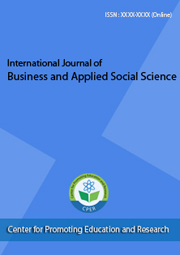Journal Menu
current
VOLUME: 8; ISSUE: 11; NOVEMBER 2022
Table of Contents
Articles
Author(s): Prof. Dr. Simon Fauser; Prof. Dr. Marco Schmaeh; Luca Beck; Leon Karman; Lisa Stackelies; Nils Ziegler; Linh Chi Tran; Nhat Thanh Jana Tran
Full Text
1832 1565
1832 1565
Abstract:
The usage of webinars is witnessing a resurgence in popularity, especially since the COVID-19 pandemic. It is now revealing itself to be an actual shift in how buyers and sellers do business in the future. Therefore, this study aims to investigate whether webinars will continue to be a valuable tool in B2B sales in the future. Specifically, it aims to gain a deeper understanding of how the role of webinars evolved in recent years and analyze its future potential.Webinars are an essential tool for a wide variety of different use cases. While they have been around for over a decade, webinars recently have seen a resurgence in popularity. As the COVID-19 pandemic strictly limited contact between people and made them work from home as an only option, hosting and participating in webinars has become more common than ever - whether in business, education, or leisure.
Webinars can be effective for various purposes as they are held in real-time and allow multiple engagement opportunities between attendees and hosts. Moreover, because of their remote nature, webinars are more cost-effective and time-saving in organizing and supervising. Consequently, it is cheaper and more convenient to reach your desired target group as a webinar host than to hold a seminar in physical form. Among other reasons, convenience and interaction seem to be the most potent aspects of cementing webinars as a tool in the digital world. Nevertheless, where exactly are they used, and how do they create value in their respective usage fields?






